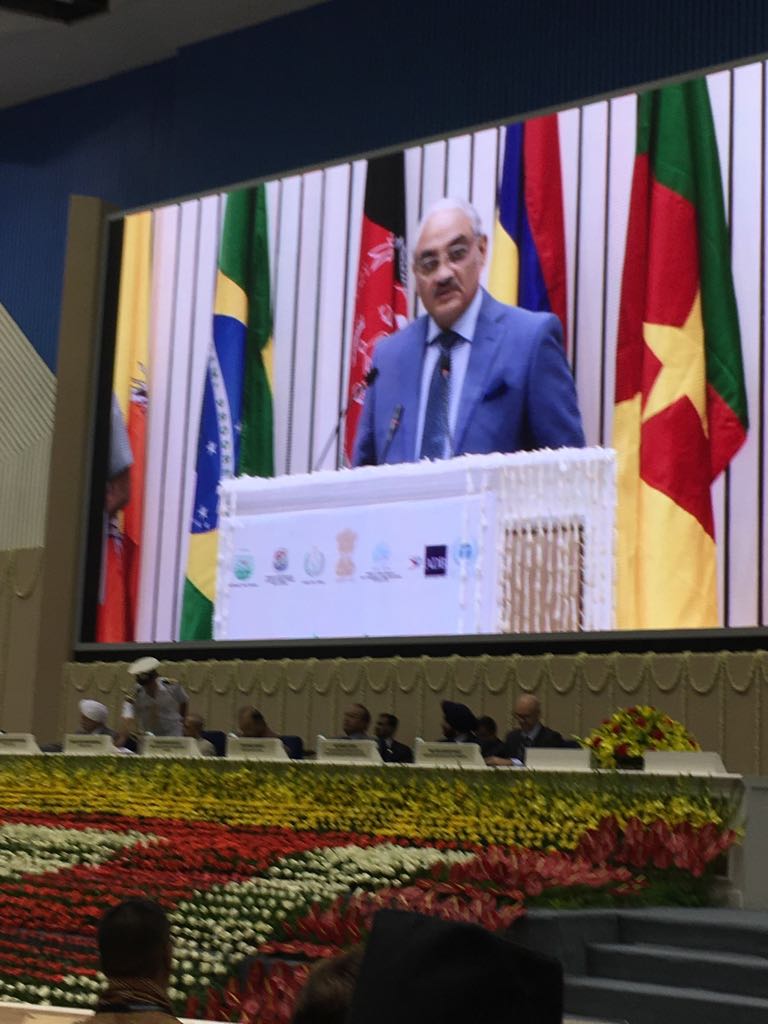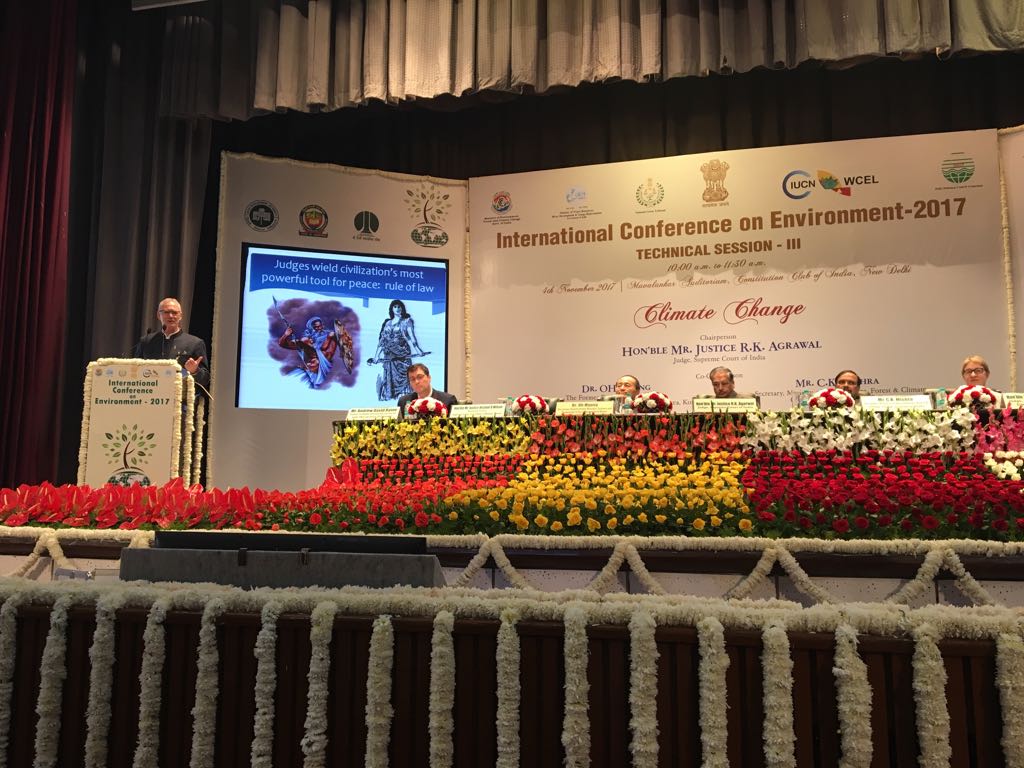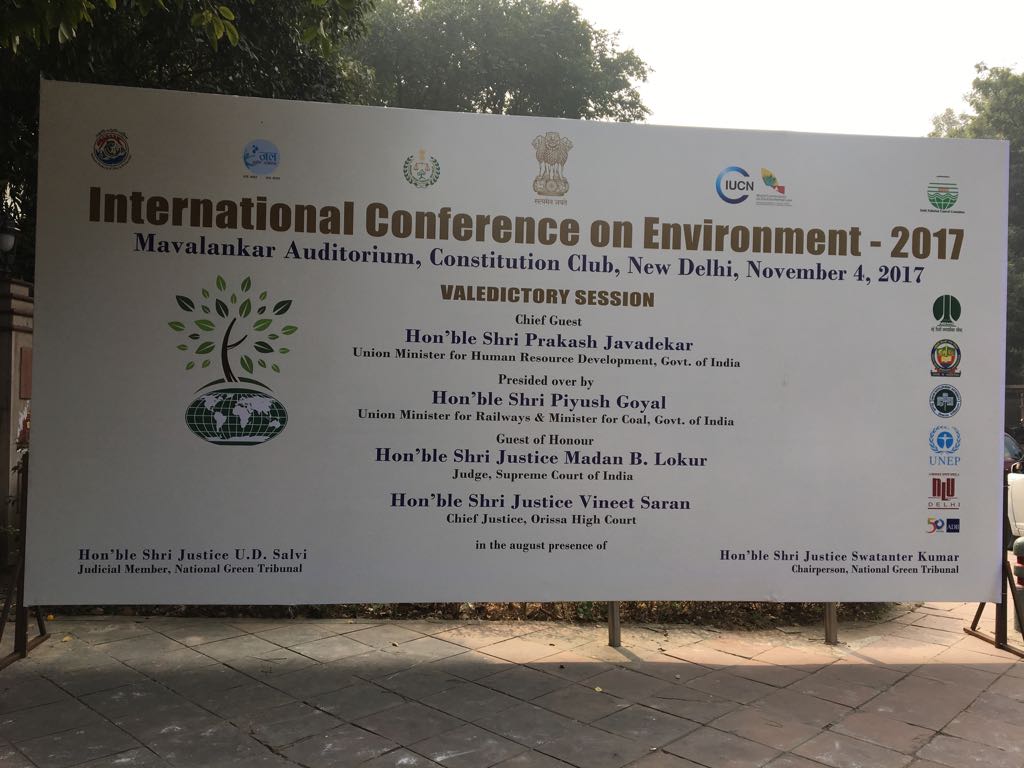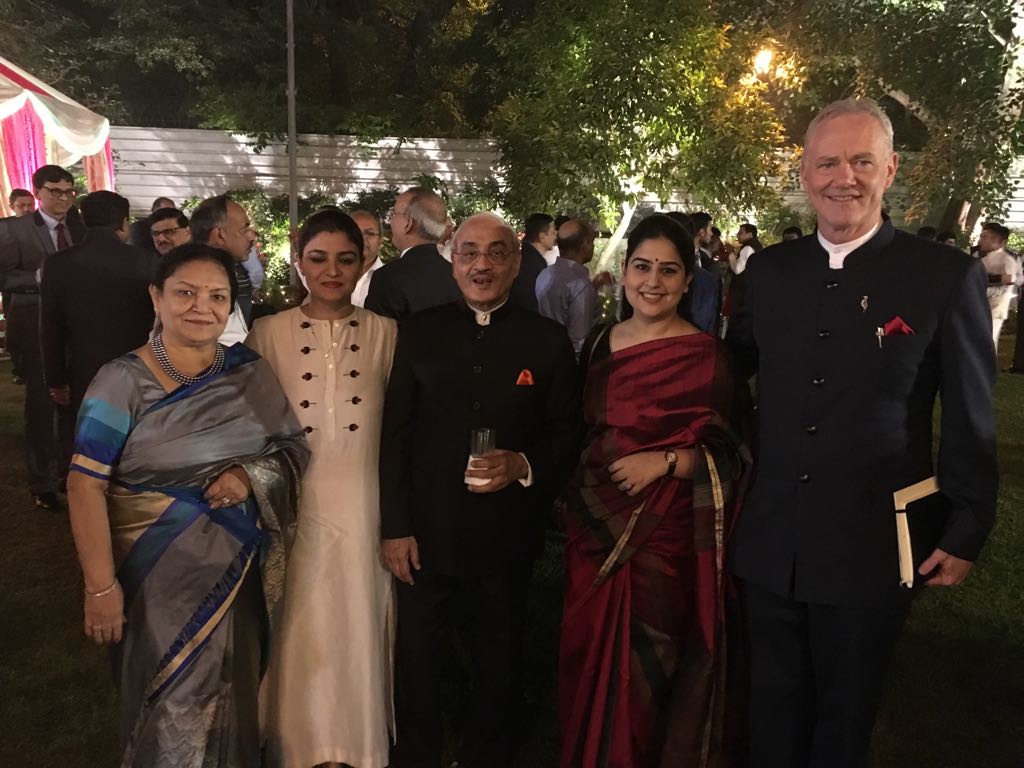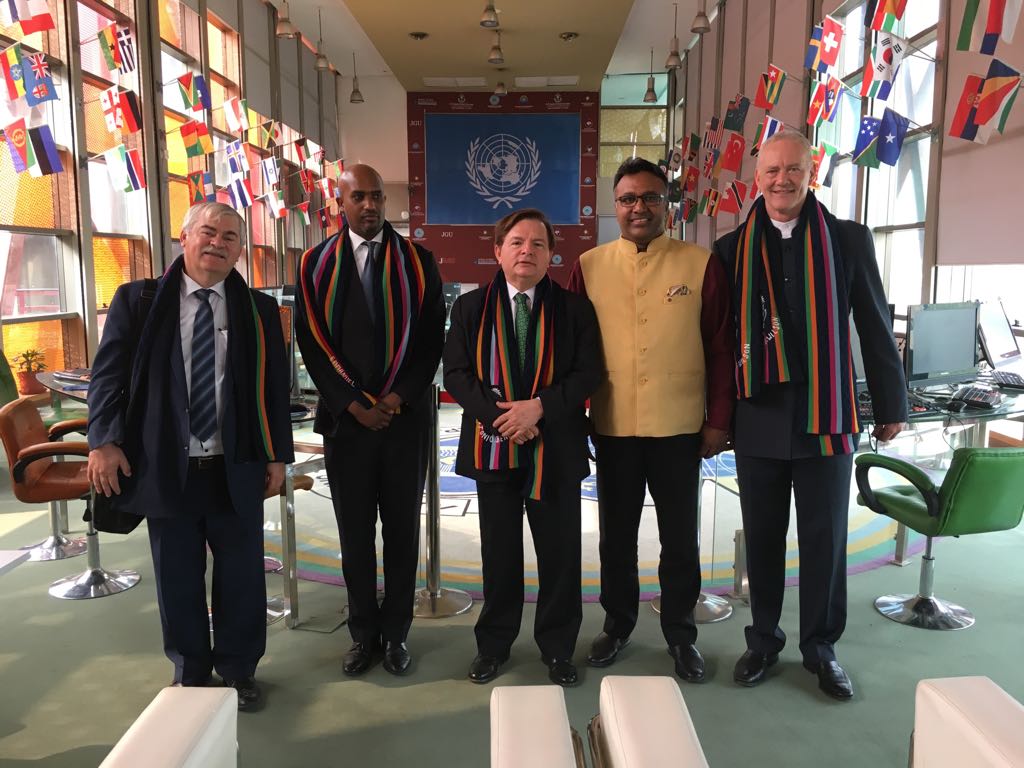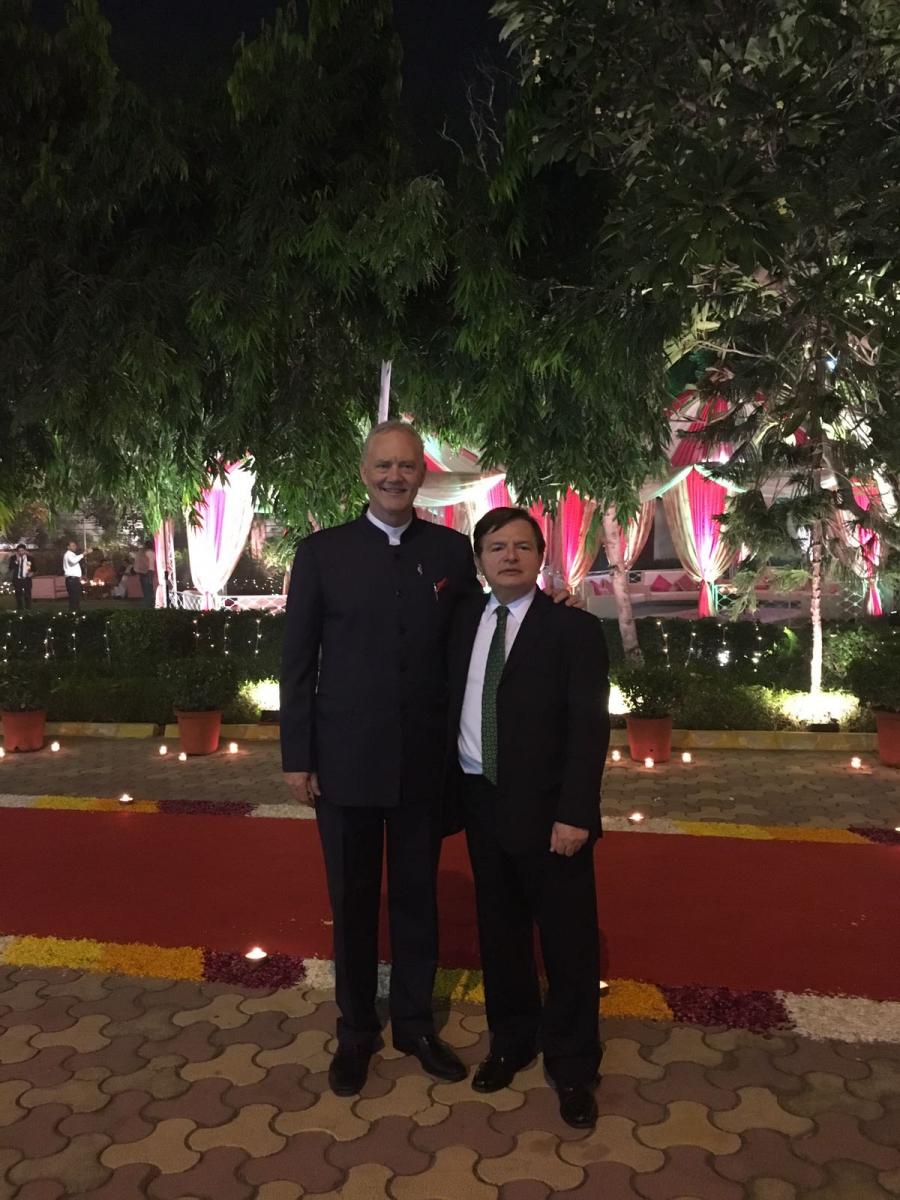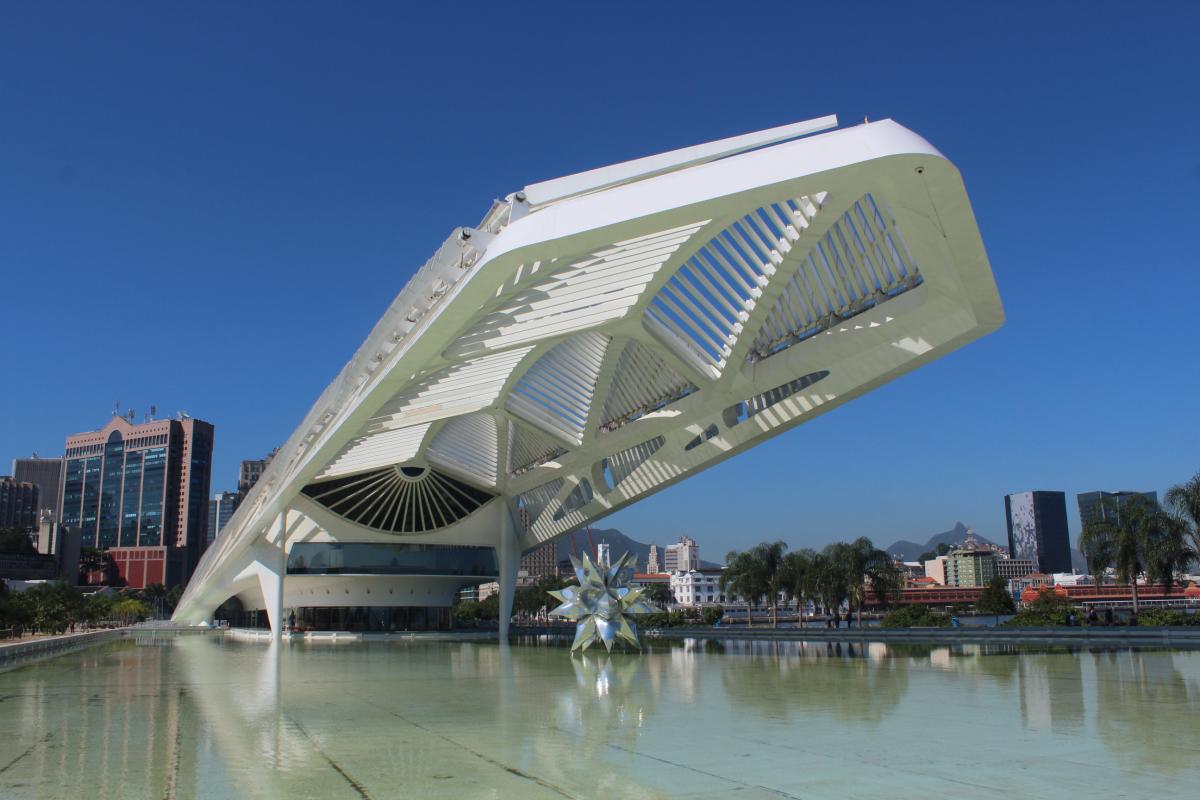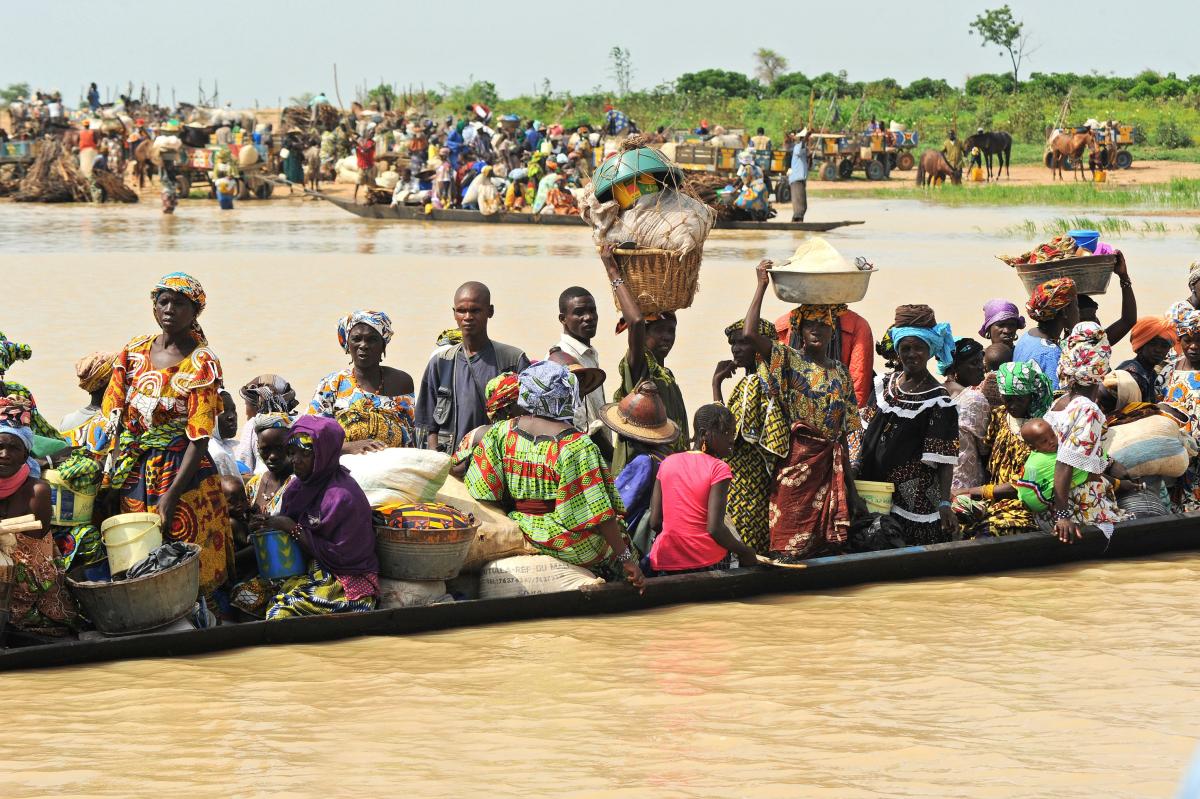WCEL and GJIE: Tribute to Justice Swatanter Kumar and India’s National Green Tribunal
The World Commission on Environmental Law, the Global Judicial Institute on the Environment, and partners from around the globe paid tribute to Justice Swatanter Kumar, Chairperson of India’s National Green Tribunal, at the International Conference on Environment in New Delhi, India, from 3-4 November 2017.
Justice Swatanter Kumar, Chairperson of the National Green Tribunal (NGT) of India since 2012, joined with the World Commission on Environmental Law (WCEL) and the Global Judicial Institute on the Environment (GJIE), among other partners, to host participants from over twenty countries at the “International Conference on Environment” in New Delhi, India, on 3-4 November 2017. The conference brought together judicial and political leaders from across India with judges, legal experts, and academics from around the globe with the objective to discuss critical issues of global environmental change and to offer effective solutions to achieve environmental justice. Session topics included “Forests and Biodiversity,” “Clean and Renewable Energy,” “Climate Change,” and “Municipal Solid Waste.” WCEL Chair Justice Antonio Herman Benjamin presented on the “Legal Protection of Forests” and Justice Michael Wilson (Member, GJIE Interim Governing Committee) spoke on “The Role of the Judiciary in Climate Change.”
This conference was a fitting tribute to the successful leadership of Justice Kumar on the National Green Tribunal. The NGT was established by the National Green Tribunal Act of 2010 and is India’s first dedicated environmental court with wide jurisdiction to address violations of environmental law, and to provide for compensation, relief, and restoration. In addition to the principal bench in New Delhi, the four zonal benches are located in Bhopal, Chennai, Calcutta, and Mumbai. The Tribunal has disposed of nearly 82% of the instituted cases within a year of their institution, achieving the legislative intent of the Act.
Justice Swatanter Kumar opened the conference, followed by high-level addresses from Shri K. K. Vengopal (Attorney General of India), Justice Antonio Benjamin (WCEL Chair, Justice of the National High Court of Brazil), Honorable Dr. Harsh Vardhan (Union Minister of Science and Technology, Environment, Forest and Climate Change, and Earth Sciences), Honorable Shri Arun Jaitley (Union Minister for Finance and Corporate Affairs), Justice Dipak Misra (Chief Justice of the Supreme Court of India), and Honorable Shri M. Venkaiah Naidu (Vice President of India). Over the two days, judges and experts from around the world participated as speakers, including several WCEL and GJIE members:
- Professor Koh Kheng-Lian (National University of Singapore)
- Justice Luc Lavrysen (Constitutional Court of Belgium)
- Professor Benoit Mayer (Faculty of Law, Chinese University of Hong Kong)
- Justice Nicola Pain (Land and Environment Court of NSW, Australia)
- Justice Takdir Rahmadi (Supreme Court of Indonesia)
- Andrew David Raine (Regional Coordinator of Environmental Law, Asia and Pacific Office of UN Environment)
- Justice Emmanuel Ugirashebuja (President, East Africa Court of Justice)
- Associate Justice Michael D. Wilson (Supreme Court of Hawai’i, USA)
Throughout the conference, the WCEL Chair and participants expressed their great appreciation for the leadership of Justice Kumar and the National Green Tribunal for its precedent setting jurisprudence, as well as its conferences over the past years successfully bringing together parliamentarians, judges, lawyers, scientists, academics, students, and other international and national delegates to raise awareness and provide innovative approaches for the environmental rule of law. Other co-sponsors of the event included UN Environment; the Ministry of Environment, Forest and Climate Change; the Ministry of Water Resources, River Development, and Ganga Rejuvenation; the Asian Development Bank; the Delhi Pollution Control Committee; the South Delhi Municipal Corporation; the New Delhi Municipal Council; the Delhi Development Authority; and the National Law University Delhi.
